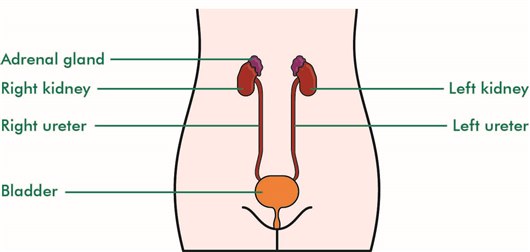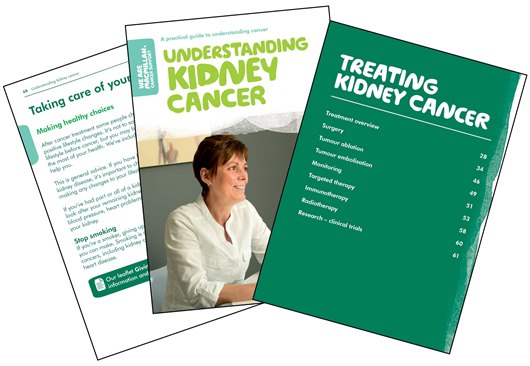Today is World Kidney Day. The day aims to raise awareness of the importance of our kidneys, and to reduce the frequency and impact of illnesses that affect the kidneys. In this blog, editor Elissia explores the kidneys and kidney cancer. She answers questions like: What are the kidneys? What do they do? What is kidney cancer? What causes it? And what are the symptoms of kidney cancer?
So, let’s start with the basics.
What are the kidneys and what do they do?
The kidneys have lots of important functions in the body, including:
Where are they in the body?
The kidneys are at the back of your body. Most people have two kidneys – one on each side, just underneath the ribcage.

Now you know a bit more about the kidneys, let’s think about kidney cancer.
What is kidney cancer?
Most kidney cancers (90%) are renal cell cancers (RCC). They start in the cortex of the kidney. The cortex is the part of the kidney that makes urine.
The most common type of renal cell cancer is clear cell renal cancer. Less common types include papillary, chromophobe and collecting duct renal cell cancers.
There is another type of cancer that can affect the kidneys. This is called cancer of the ureter and renal pelvis or transitional cell cancer. Cancers in the ureter or renal pelvis are rare.
Who gets kidney cancer?
Over 12,500 people in the UK are diagnosed with kidney cancer each year. It is more common in men than women.
Most people who get kidney cancer are over the age of 60.
What causes it?
We don’t yet know what causes kidney cancer. But research is going on to try to find out more.
Certain things can affect the chances of developing kidney cancer. These are called risk factors. Here are some of the risk factors for kidney cancer.
You can read more about each of these risk factors in our information on kidney cancer.
What are the symptoms of kidney cancer?
Small kidney cancers don’t usually cause symptoms, so they are often diagnosed by chance.
When kidney cancer does cause symptoms, these may include:
Most people with these symptoms won’t have kidney cancer. They can be caused by more common conditions. But, if you have any symptoms, it’s important to get them checked by your doctor.
If you would like to know more about kidney cancer, our booklet Understanding kidney cancer might be helpful. It has information about diagnosis, symptoms, treatment and after treatment. To order a printed booklet or download a PDF or eBook, visit be.macmillan.org.uk

To see what else Macmillan's cancer information team has been blogging about, please visit our blog home page! You can subscribe to receive our blogs by email or RSS too.
We're with you every step of the way
The Macmillan team is here to help. Our cancer support specialists can answer your questions, offer support, or simply listen if you need a chat. Call us free on 0808 808 00 00.
Comments? Feel free to add them below (you need to be logged in).
Keep in touch Follow Macmillan’s cancer information team on Twitter @mac_cancerinfo
Whatever cancer throws your way, we’re right there with you.
We’re here to provide physical, financial and emotional support.
© Macmillan Cancer Support 2026 © Macmillan Cancer Support, registered charity in England and Wales (261017), Scotland (SC039907) and the Isle of Man (604). Also operating in Northern Ireland. A company limited by guarantee, registered in England and Wales company number 2400969. Isle of Man company number 4694F. Registered office: 3rd Floor, Bronze Building, The Forge, 105 Sumner Street, London, SE1 9HZ. VAT no: 668265007